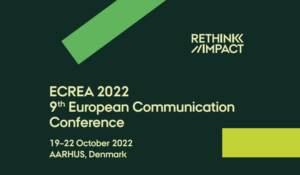
The Centre for Media Pluralism and Media Freedom is hosting a panel titled “EU, US, and Australia’s Approach to Regulating Online Platforms” at the 9th European Communication Conference – ECREA 2022 in Aarhus, Denmark.
The panel will feature four presentations:
Regulating News and Disinformation on Digital Platforms: A case of Australia by Timothy Dwyer, The University of Sydney & Derek Wilding, University of Technology Sydney
This presentation, based on a recent publication, contrasts the voluntary, self-regulatory approach used by the Australian government for disinformation to the statutory model used for the News Code – with the twist that substantial revenue has flowed from platforms to publishers simply on the prospect of the News Code applying. There are insights here into how national governments deal with digital platforms, but also into our understanding of the concept of ‘accountability’ and the role of self-regulation and direct regulation in delivering it.
EU legislative matrix to tackle disinformation and towards platforms accountability by Konrad Bleyer-Simon, European University Institute
With the Code of Practice on Disinformation, the Digital Services Act, and other legislative and policy instruments the EU is working on a pan-European response to disinformation and towards making platforms more transparent and accountable for their actions. In addition, some of the member states are coming up with their own approaches. While the EU serves as an example of comprehensive and complementary responses to some of the key risks associated with online platforms, this matrix already faces many obstacles in the enforcement.
When platforms self-report: Lessons learnt from “COVID-19 reports” by Maren Beaufort, Austrian Academy of Sciences
While the original intent of the European regulatory approach was to assess laws and policies in relation to elections, the COVID-19 pandemic and the ensuing “infodemic” provided another relevant trigger for disinformation-related policymaking, based on the self-reporting of the platforms. The analysis revealed fundamental shortcomings in the processes of self-regulation as well as transparency problems in the reporting system itself, showing that regulation, standardisation, and transparency must be considered differently in our new communication order.
What are we thinking about when we talk about co-regulation? by Elda Brogi, European University Institute and Iva Nenadic, European University Institute and University of Zagreb
The Digital Services Act seeks to establish a transparency and accountability framework for online platforms and sets out a co-regulation as a desired form of regulatory regime in addressing harmful content online. Co-regulation is often presented as the most adequate option in platform regulation but is rarely operationalised in the context of information gatekeeping platforms. This presentation further considers the capabilities and competencies of media authorities to take part in the regime.
The panel and the discussion will be chaired by Iva Nenadic.
